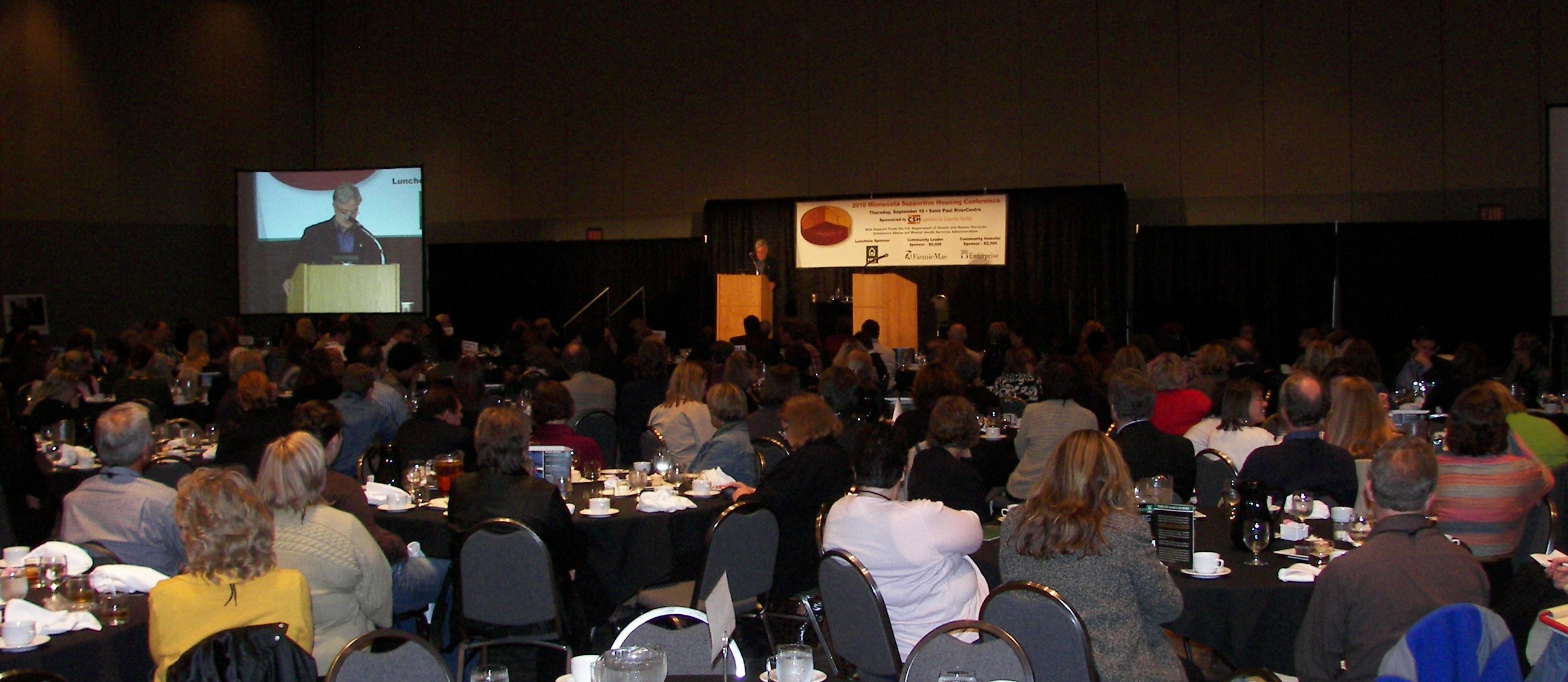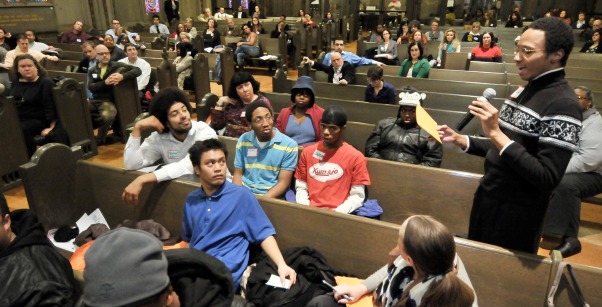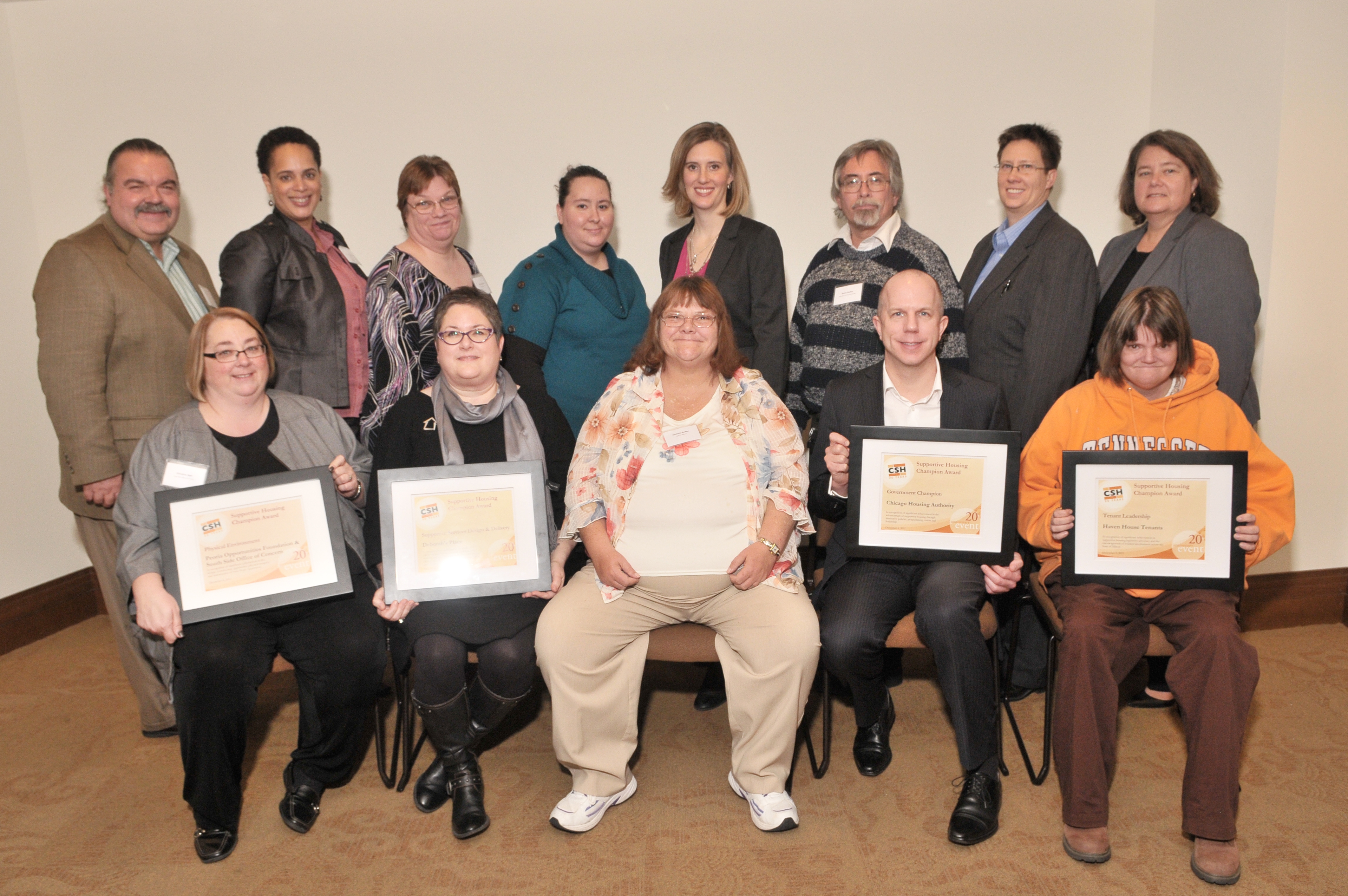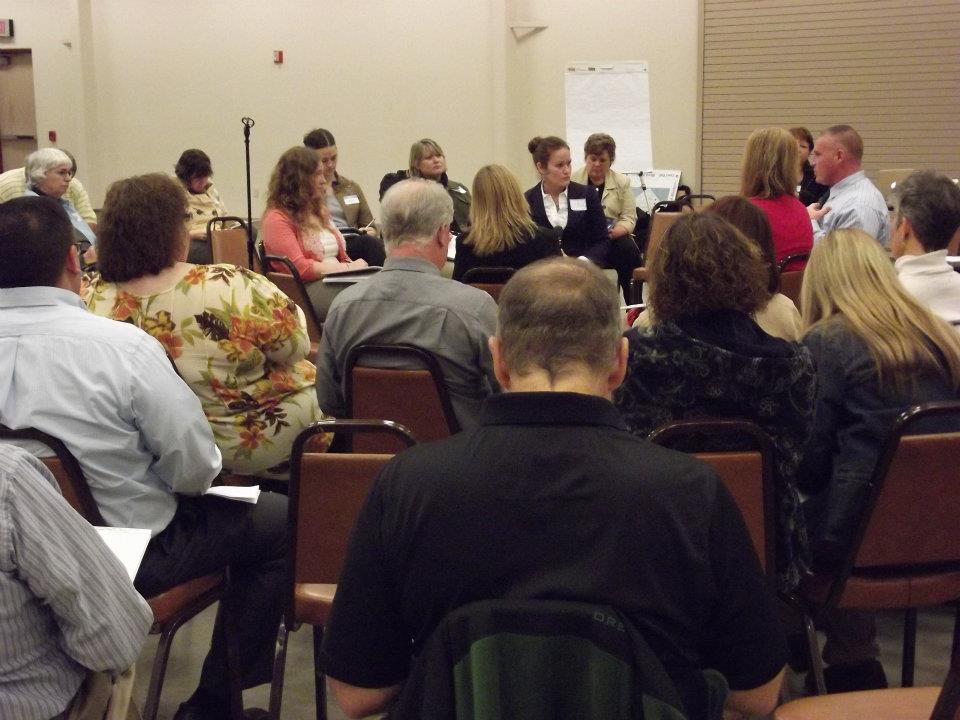Chicago’s 10-Year Plan to End Homelessness, Getting Housing, Staying Housed, was formally adopted by Mayor Daley in 2003 and implemented by a public-private partnership between the City of Chicago and the Chicago Alliance to End Homelessness. The Plan outlined a bold, ambitious strategy for ending homelessness by:
- Preventing individuals and families from becoming homeless in the first place;
- Placing individuals and families in permanent housing as quickly as possible when they do become homeless, a strategy called “Housing First;” and,
- Providing wraparound services to promote housing stability and self-sufficiency.
As Chicago’s Plan to End Homelessness entered its ninth year of implementation, it needed to be updated and the community used a CSH-facilitated Charrette to do so. CSH incorporated the community feedback from the Charrette in their final report presented to the Steering Committee and the Chicago Alliance on February 7, 2012. This report will serve as one of the foundational documents for the writing of Plan 2.0



